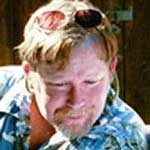One-of-a-Kind Process gets the Nod from FDA
Keith Everett , United States I think innovation attracted me because of the fact that you are never bored and you have an implied and expected responsibility to make things better than they were before....
I think innovation attracted me because of the fact that you are never bored and you have an implied and expected responsibility to make things better than they were before....My Mother was and Artist and my father was an electrical engineer in the Marine Corps. From this yin and yang type parenting structure, it became evident to me that there were many ways of looking at any issue and differences are good and valuable. I don't mean to say that this was a harmonious arrangement because, in truth, often my environment growing up was chaotic and bewildering.
This prepared me, I think, for the type of environment that many innovations arise from, however. Conflicting input, layered criteria, and differing expectations as to outcomes are all part of a truly innovative environment. It cannot be helped, in most cases. When I explain my background to those that know me, the response is often, "well, that explains a lot..."
When I was a introverted and antisocial senior in high school in the early 70s, I won a state botany award with a science project I completed evaluating the health of various duckweed populations in graduated stages of overcrowding. It's doubtful that few reading this will even know what Duckweed is --and those who do will probably know it as an obscure aquatic plant that is often referred to as " pond scum ". However, Duckweed or Lemna sp. as it's known in scientific circles has some attributes that make it of considerable value in the biotech continuum of economically viable plant pharmaceutical production systems.
Ten years ago you wouldn't have heard of duckweed in any context other than a pest or weed clogging the local freshwater fishing holes. In 1999 Biolex Incorporated was formed with the central goal of capitalizing on duckweeds' naturally rapid growth rate and high protein concentration as a source for value added pharmaceutical compounds. No one had attempted to grow a small aquatic plant in an FDA regulated environment previously so there was no equipment or material out there that you could apply directly to this process.
Anyone familiar with GMP and FDA regulation will know the difficulties associated with any new drug application and manufacturing even if the production system used is well proven and industry standard. However, we had an idea to capitalize on duckweeds ability to make large amounts of target pharmaceutical proteins cheaply and quickly, compared to the current state of the art.
At Biolex, our approach was so far off the beaten pharma path that we had no means to industrialize our "hobby scale" bench top process. The added challenge was succeeding at scaling the process without breaking the bank and loosing our potential advantage of simplicity, containment, and range of target proteins under a blanket of insurmountable cost.
When I started at Biolex, I was an automation director and designer working on automating our plant tissue based line creation process. This was a challenge that gave me satisfaction on many levels however, our company focus changed to meet the looming challenge of industrializing our very inefficient bench process. So, given my success with other projects, this one finally ended up in my lap with very little preexisting information to start with.
So, making a long story short, I designed through an iterative process a disposable-bag based production system and the environmental control systems to run it. The current process version is in place ready to produce our Phase III candidate and begin the final stretch to commercialization. Our process is one of a kind and well liked by the FDA which is a big deal.
Next Story »
